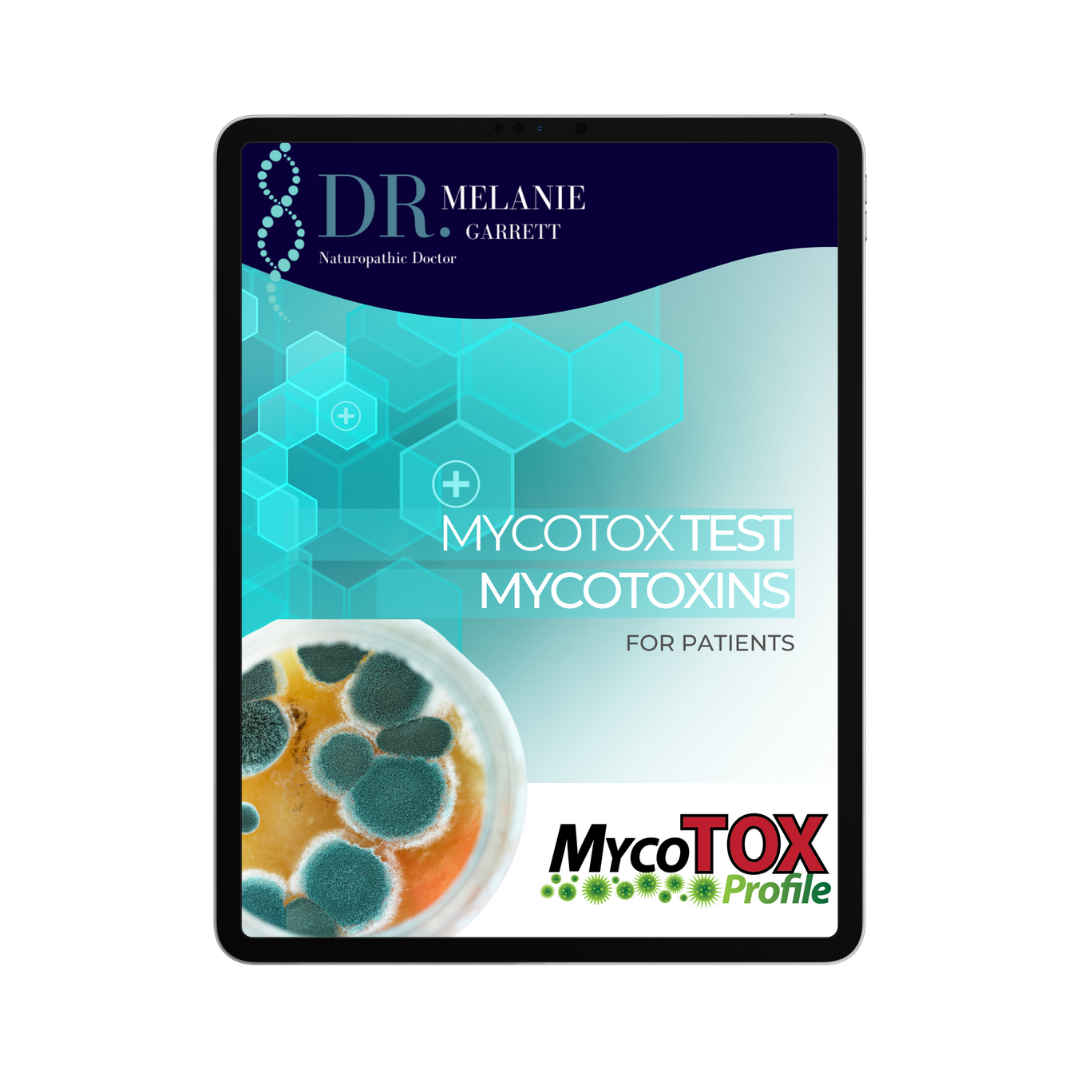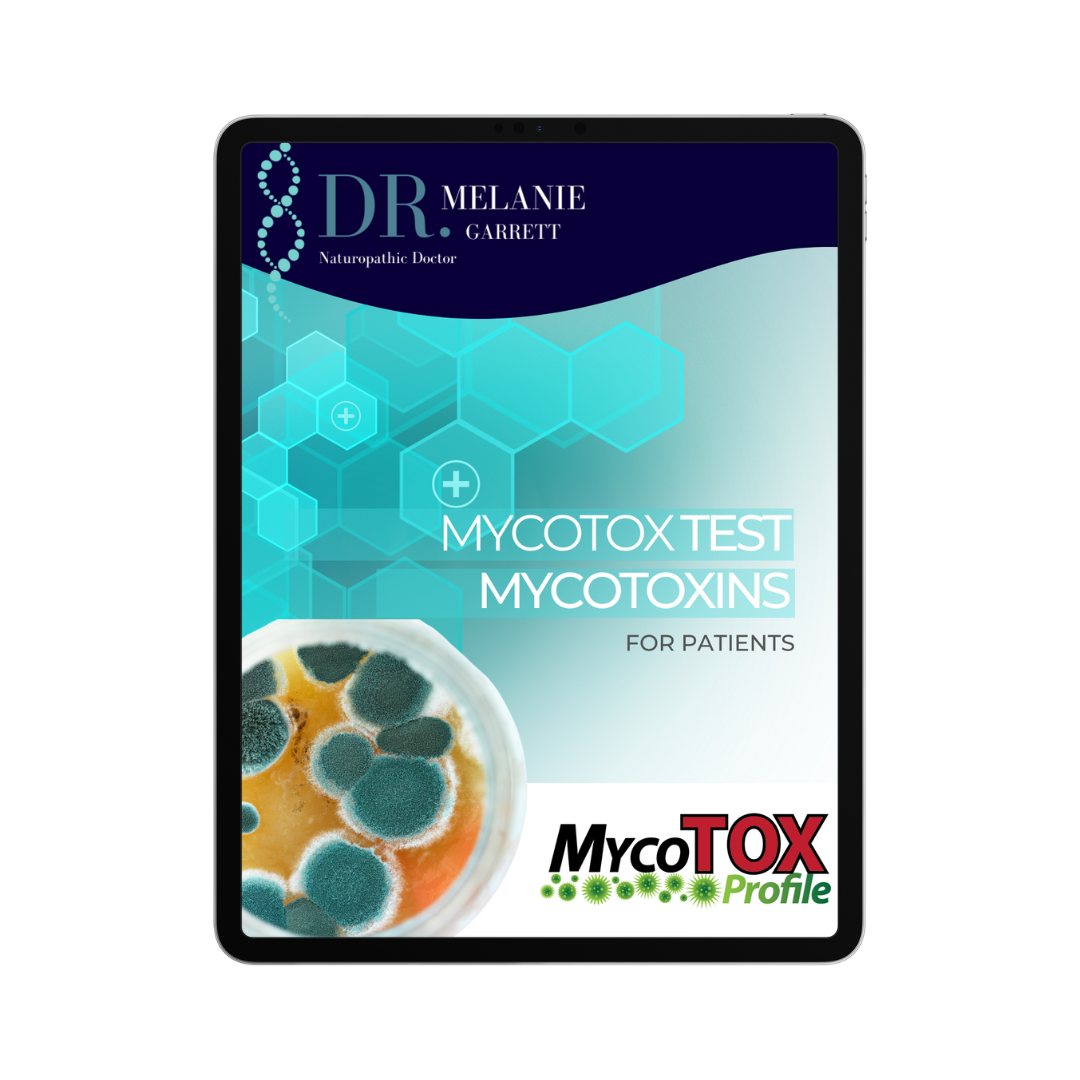Ochratoxins
What Is Ochratoxin (Mold Toxicity)?
Ochratoxin is a type of mycotoxin that is produced by certain species of fungi, including Aspergillus and Penicillium. It can contaminate various food and feed products, such as cereals, coffee, wine, beer, dried fruits, and spices. Ochratoxin is a potent toxin and has been shown to cause adverse health effects in animals and humans. Exposure to ochratoxin has been linked to kidney damage, immunosuppression, and an increased risk of cancer.
Common Symptoms Of Ochratoxins:
The symptoms of ochratoxin exposure can vary depending on the level and duration of exposure. Some common symptoms associated with ochratoxins include:
- Fatigue
- Headaches
- Respiratory issues
- Nausea and vomiting
- Abdominal pain
- Cognitive impairment
- Reduced immune function
- Kidney damage
- Increased risk of cancer
It is important to note that the symptoms of ochratoxin exposure can also be similar to other health conditions, and a proper diagnosis should be made by a healthcare professional. If you suspect that you have been exposed to ochratoxin, seek medical attention immediately.
Testing & Diagnostics

The Mycotox lab test is a diagnostic test that is used to identify mycotoxins in a person's urine. It is a type of urine test that is used to evaluate exposure to toxic mold and identify the presence of specific mycotoxins in the body.
The test is offered by Great Plains Laboratory, a specialty diagnostic laboratory that focuses on identifying and treating chronic illnesses, including those related to toxic mold exposure. The Mycotox test uses liquid chromatography-mass spectrometry (LC-MS) technology to measure the levels of mycotoxins in a person's urine.
The Mycotox test can help identify specific mycotoxins that may be causing symptoms related to mold illness. The test can detect several common mycotoxins produced by mold, including aflatoxins, ochratoxin A, and trichothecenes. By identifying the specific mycotoxins present in a person's body, healthcare providers can better understand the extent of the exposure and develop a targeted treatment plan.
It is important to note that while the Mycotox test can help identify mycotoxins in the body, it is not a definitive diagnostic test for mold illness. Other diagnostic tools, such as physical examination, medical history, and other laboratory tests, may be needed to confirm a diagnosis of mold illness.
If you are experiencing symptoms of mold illness, it is important to speak with a healthcare provider with experience in diagnosing and treating this condition. They can help determine if the Mycotox test is appropriate for your situation and develop a comprehensive treatment plan to address your symptoms and improve your overall health and well-being.
Exploring Neuropsychiatric Connections
Trichothecene mycotoxins
A study published in the Journal of Occupational and Environmental Medicine in 2015 found that individuals exposed to trichothecene mycotoxins had significantly higher rates of cognitive impairment in humans.
Ochratoxin A
Another study published in the journal Neurotoxicology in 2018 found that exposure to a specific mycotoxin called ochratoxin A was associated with decreased cognitive function and increased anxiety in rats.
Download My Free Mycotox Test Guide
(For Patients)

Learn More About Testing
Helping you stay informed and educated when it comes to integrative testing.
*This does not substitute medical advice or consultation. Please speak with your health care provider before testing.